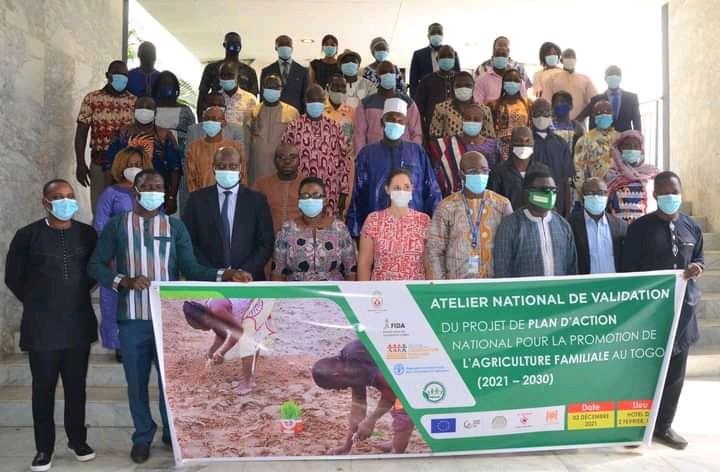Producer groups in Togo are successfully influencing government policy on Family Farming
The old adage “there is strength in numbers” beautifully sums up why forest farmers and indigenous peoples should consider being part of a cooperative. As an individual, you can be one voice shouting into the darkness, but as a group your voice can be elevated and make more of an impact. Forest and farm producer organizations engage more and more effectively with governments at all levels to ensure that grassroots voices and needs are better reflected in policies.
As a result governments are increasingly providing land, funding and physical infrastructure for producer organisations, helping them gain access to funding and building roads farmers need. Producer organisations in Togo are now directly involved with policymakers in designing policies that will affect their future.
Shaping family farming policy in Togo
The United Nations has declared 2019-2028 the Decade for Family Farming – highlighting the importance of this way of life to millions across the world and the need for family farming to be recognized at the heart of agricultural, environmental and social policies.
In Togo, farming employs over two-thirds of the working population. Farms are small, run by families and rely on manual labour – there is little mechanisation. Formed in 2001, the Togolese Coordination of Farmers’ Organizations and Agricultural Producers (CTOP) brings together 20 producer groups which together have over half a million members.
By initiating meetings in 2021 with policymakers, such as the government’s National Platform for the Promotion of Family Farming in Togo (PNAFAT), CTOP is now leading the design of the National Action Plan for the Promotion of Family Farming in Togo (2021-2030) which it is linking to the United Nations Decade of Ecosystem Restoration. Through CTOP’s leadership, Togo is one of the first countries in the world that validated its National Action Plan.
CTOP has also ensured through dialogues with the Ministry of Agriculture that proposals from family farmers are included in the draft new National Agricultural Framework Law, Togo’s planned National Strategy for Agroecology and Organic Farming, the development of agro-industrial processing units and the regulations for implementing a land and real estate code approved in 2018.
“CTOP is being recognized as an important player by the Ministry of Environment. Farmers play now an important role as agents of change in restoration efforts of the country to meet the AFR100 national goals of restoring 1.4 million ha of forested landscapes” said Kodzo Elom Zogan, Executive Secretary at CTOP. This example shows the impact that producer organizations are having at a national governmental level, and illustrate what can be achieved by using the power of the collective voice.
In 2021, the Forest and Farm Facility helped strengthen or launch 83 subnational policy processes in its partner countries.
For more information about policy changes in favour or rural producers in 2021 achieved with FFF support, please read the 2021 FFF Annual report: https://pubs.iied.org/20836g


Comments are closed, but trackbacks and pingbacks are open.